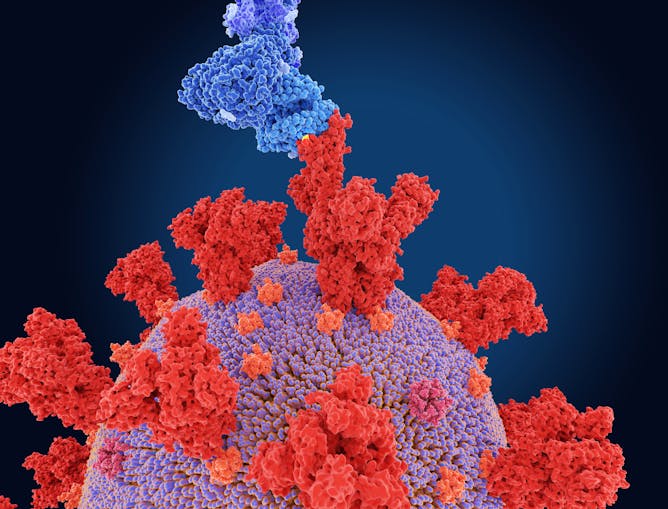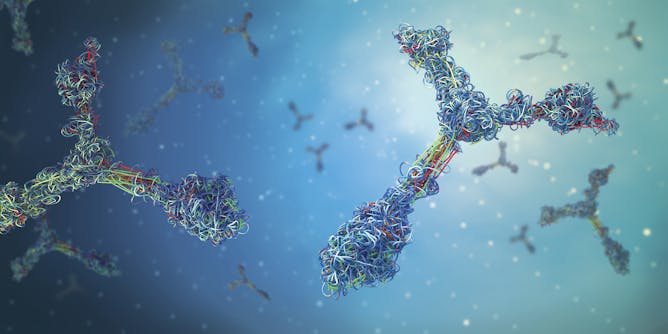|
Welcome to our Sunday newsletter. You’ll find the top stories The Conversation U.S. published this week listed below.
Editor’s note: Tuesday marks the 80th anniversary of Japan’s bombing of Pearl Harbor and an opportunity to reflect on its significance. As Colorado State University political scientist Peter Harris observed in an article we published in 2016, that attack on Dec. 7, 1941, led to more than formal U.S. entry into World War II.
Pearl Harbor changed how this nation would interact with other countries for the rest of the 20th century and beyond. Declaring war on Japan and fascist European powers marked “a critical juncture in the history of U.S. foreign relations, sidelining isolationism as a powerful force in domestic politics and making overseas engagement the accepted norm,” Harris wrote.
|

The omicron variant possesses numerous mutations in the spike protein, the knob-like protrusions (in red) that allow the virus to invade other cells.
Juan Gaertner/Science Photo Library via Getty Images
Suresh V. Kuchipudi, Penn State
It’s too early to say whether the newly identified omicron variant is going to overtake delta. But particular mutations in the new strain have researchers deeply concerned.
|

Reverse vaccination teaches the immune system to ignore rather than attack self-proteins.
Christoph Burgstedt/Science Photo Library via Getty Images
Sathy Balu-Iyer, University at Buffalo
A recent lab-stage study finds that preexposure to the proteins used to treat conditions like hemophilia A could help train the immune system to tolerate rather than attack therapies.
|
|
|
-
Elizabeth C. Tippett, University of Oregon
A record number of Americans are quitting their jobs. But before you opt to join them, you should consider the risks and costs.
-
Jonathan Feingold, Boston University
Critical race theory is often distorted by GOP politicians and pundits to stir up its Trump base. But CRT is needed more, not less, argues one legal scholar, to explain American racial disparities.
-
Joe Árvai, USC Dornsife College of Letters, Arts and Sciences
Critical thinking means seeking out new information – especially facts that might run contrary to what you believe – and being willing to change your mind. And it’s a teachable skill.
|
|